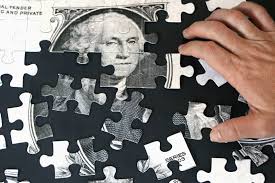I know it’s heresy, but not all revenue is good revenue—particularly for start-ups. In fact chasing and winning the wrong deals can be devastating to the long term success of a start-up.
But let me backtrack a little bit, I’ve written about this concept quite a bit beore, if you want to read some of the articles, follow the LINK. But let me give a brief recap:
Good revenue is:
- Business we can deliver profitably.
- Business where we can delight the customer, enabling us to scale within their organization.
- Business where delighted customers will talk about us and help us more easily acquire other customers.
- Business where we learn something that enables us to leverage that knowledge and grow rapidly–expanding our share in an industry, market, geography.
- Business that helps us grow our understanding of how we might grow with the customers–developing new or follow on offerings.
- Business that helps us become more effective and efficient in serving customers in the industries and markets. Stated differently, each subsequent piece of business is more profitable.
By contrast, bad revenue is from opportunities we win that have none (or too few of the characteristics) outlined above.
See the problem with winning deals, is we have to deliver on them. We have to create an ecstatic customer that feels compelled to share their experience with us. In start-ups, sometimes we are so compelled to get revenue, we book deals that completely derail us.
We may get ahead of ourselves, committing to deals that have requirements we don’t quite have ready. We sell the future, but customers are buying what we can deliver today.
To correct this and keep the customer happy, we divert resources to “fix the problem.” But in start-up companies diverting the precious resources we have to fix the problem can derail us. For example, I recently saw a company that realized they couldn’t deliver everything a very large customer thought they had bought. But this start up had to deliver on their commitments. Not doing so would have had serious financial and reputation impacts. To deliver on it they diverted 30% of the development team to fixing the problem. But those people were critical to meeting their product development plans/commitments. As a result, their product plans have been delayed significantly, adversely impacting their plans to grow and scale.
This is something that is really tough for founders (and some investors) to accept. Some are relatively inexperienced and don’t understand the importance of the concept. Many are just struggling for revenue and any revenue looks good.
Pragmatically, as start up founders, we sometimes have to chase and accept bad revenue. But if we do this, we have to do it carefully, recognizing the consequences of what we are doing and having a strategy to manage it.
Sadly, though, too many founders don’t recognize this or ignore it. As a result they struggle and may fail. Of they fail to scale at the rate they could and should. There are few organizations where a relentless focus on good revenue is more important than in start-up and early stage companies.
If you are a start-up founder, or CRO, have you defined what good and bad revenue is (you have to define both). Are you focusing your resources on generating good revenue?
Afterword: Thanks to Amy Volas and Jeff Bajorek for provoking this idea. They recently invited me to my very first “Clubhouse,” meet-up. It was a fascinating conversation and Clubhouse is an intriguing platform. Stay tuned, Amy and I plan to do some interesting things in the near future.

Great stuff Dave! I also have found that, when we’re really honest with ourselves, that most businesses, start-ups, newcos (under 5 years) as well as long established operations, often times still chase bad deals that derail strategic plans and drain tight resources. I look at these situations and typically suggest “firing” the customer!
Great Topic. Good & Bad Revenue
It’s part of a 2×2 I use to talk about
Products Good & Bad,
and Markets Good &Bad.
You end with Good Product in Good Market, DRIVE HARDER
and have identified Bad Products in Bad Markets, STOP
the other two,
Bad Product in Good Market is Product Development
and
Good Product in Bad Market is Market Refocus.
With thanks to Igor Ansoff for his Product/Market 2×2
and the HUNDREDS of Hours we spent working with it.
Thanks Hank!